
Indeed, I mean to enlighten you about how darkness at night can improve your garden's ecological function.
Many gardeners today are trying to work with, not against, nature. We're learning more about our garden's effect on local ecosystems, and we're choosing plants that support native bees, feed caterpillars of butterflies and moths and provide birds with food and habitat over the winter.
ILLUMINATING A PROBLEM
We know pollinators are decreasing worldwide because of habitat loss and pesticide use, and we are creating eco-friendly gardens to help combat that loss. But another factor has come to light-namely, artificial light itself. Too much of it is shining on our gardens at night.
Landscape lighting has many practical purposes. It illuminates paths, stairs and entrances, reducing tripping hazards and helping to ensure the safety of family and guests. But it can also be hazardous to the environment.
DarkSky International-an organization that promotes the value of unlit places for humans and wildlife-defines light pollution as the human-made alteration of the outdoor light levels that occur naturally. They explain further that when we overlight, fail to use timers and sensors or use the wrong color of light, we can negatively affect many parts of our world, such as migratory birds, pollinators, sea turtles and mammals, including humans.
Anyone who has gardened knows that plants use light as an energy source and need periods of darkness to thrive. The natural 24-hour cycle of light and darkness and its seasonal variations are disrupted when plants are exposed to artificial light at night. This over-lighting can affect flowering, leaf bud, seed set and dispersal and possibly delay leaf fall, a plant's natural process of preparing for colder temperatures.
Esta historia es de la edición September - October 2024 de Horticulture.
Comience su prueba gratuita de Magzter GOLD de 7 días para acceder a miles de historias premium seleccionadas y a más de 9,000 revistas y periódicos.
Ya eres suscriptor ? Conectar
Esta historia es de la edición September - October 2024 de Horticulture.
Comience su prueba gratuita de Magzter GOLD de 7 días para acceder a miles de historias premium seleccionadas y a más de 9,000 revistas y periódicos.
Ya eres suscriptor? Conectar

Pot It Up
Shake up the containergarden with theseNorth America –native perennials

THE GARDEN PATH TO PERDITION
I WAS CRUISING RIGHT ALONG, feeling okay about myself, when I came across a list of the Seven Deadly Sins.
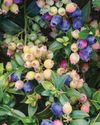
A Productive PATIO
Tiny fruit, vegetable and herb plants help gardeners maximize any sort of growing space
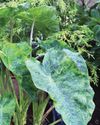
TROPICAL FUSION
A FUSS-FREE APPROACH TO USING BOLD TROPICAL PLANTS IN ANY TEMPERATE GARDEN

WINTER READING
Pass the time with any of these inspiring books
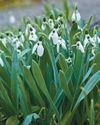
SENSING A PATTERN
Greg Coppa reflects on an odd weather year and what continued warming may mean for his Rhode Island garden
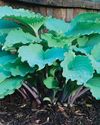
TOP-PRIZE PERENNIALS
A foliage masterpiece for shade and a late bloomer for sun

MARK WESSEL
What's new for fruit and vegetable gardeners?
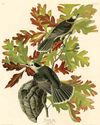
KINGS OF THE NORTHERN FORESTS
A look at the trees, shrubs and perennial plants that bolster life in Ecoregion 5

PROJECT FEEDERWATCH
Gardeners can help scientists know just where the birds are in winter